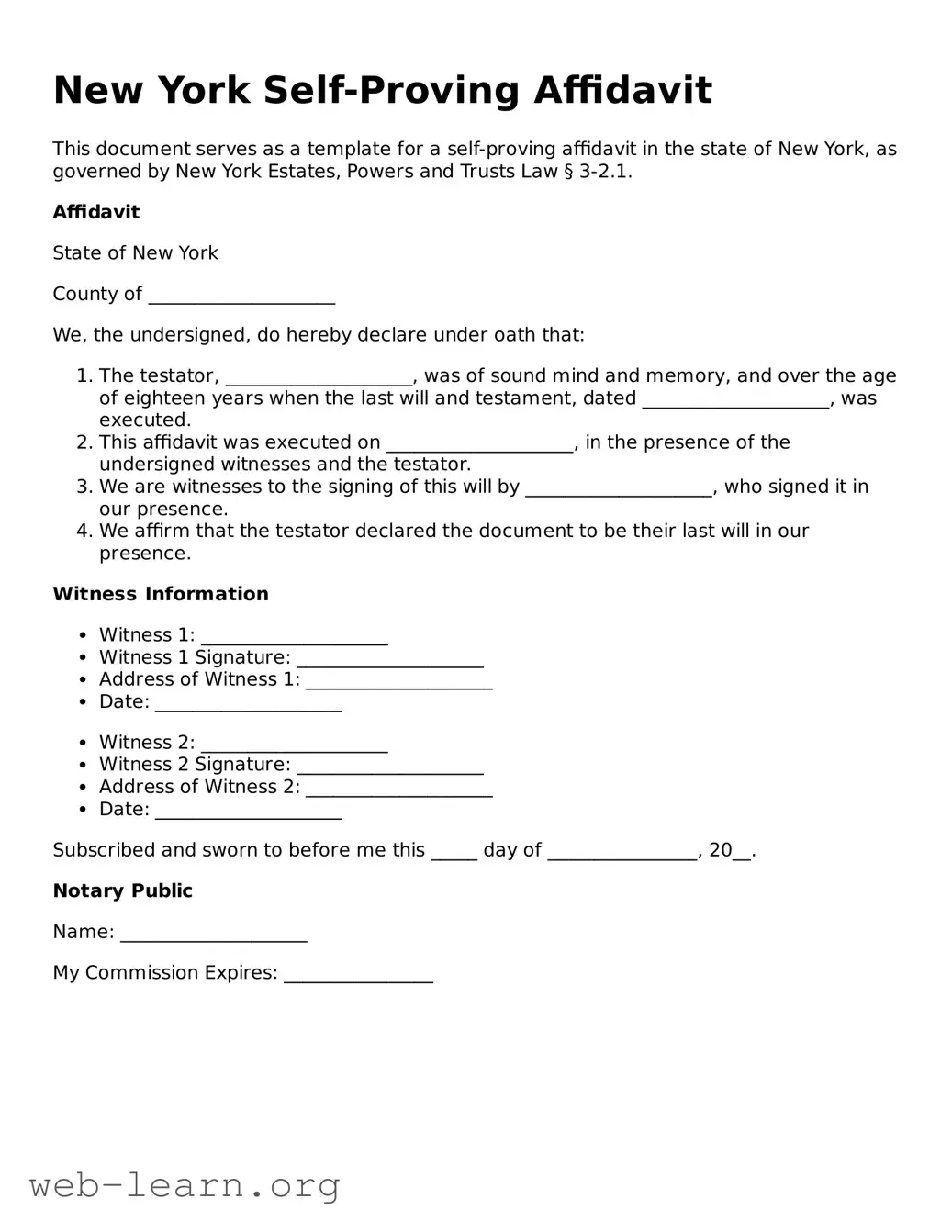New York Self-Proving Affidavit
This document serves as a template for a self-proving affidavit in the state of New York, as governed by New York Estates, Powers and Trusts Law § 3-2.1.
Affidavit
State of New York
County of ____________________
We, the undersigned, do hereby declare under oath that:
- The testator, ____________________, was of sound mind and memory, and over the age of eighteen years when the last will and testament, dated ____________________, was executed.
- This affidavit was executed on ____________________, in the presence of the undersigned witnesses and the testator.
- We are witnesses to the signing of this will by ____________________, who signed it in our presence.
- We affirm that the testator declared the document to be their last will in our presence.
Witness Information
- Witness 1: ____________________
- Witness 1 Signature: ____________________
- Address of Witness 1: ____________________
- Date: ____________________
- Witness 2: ____________________
- Witness 2 Signature: ____________________
- Address of Witness 2: ____________________
- Date: ____________________
Subscribed and sworn to before me this _____ day of ________________, 20__.
Notary Public
Name: ____________________
My Commission Expires: ________________
